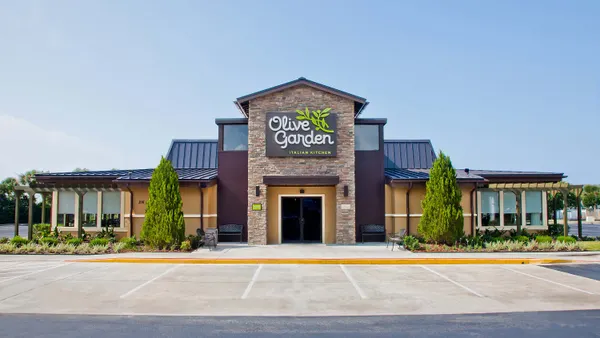Dive Brief:
- Half of U.S. diners with exclusion diets report that their eating habits hurt their social life, and 61% believe they have to spend more money on meals in order to maintain their lifestyle, according to research from AI-powered food discovery platform Spoon Guru emailed to Restaurant Dive.
- At restaurants, 52% of these diners claim it's difficult to find diet-compliant meals and both men (48%) and women (36%) report that they were judged for their specific dietary needs.
- According to the report, gluten-free (60%) and keto (55%) diners struggle the most when ordering at a restaurant. While unclear product labeling was cited as the top reason why consumers ate the wrong food, waiter error was reported to be the number two cause.
Dive Insight:
As trendy lifestyle diets like keto and paleo continue to gain popularity among U.S. diners, restaurants across segments would be wise to find ways to cater to these preferences. And while investing in menu changes or new additions could be one way to lure this subset, training staff about the parameters of major diets — as well as allergies — and clearly calling out ingredients on menus could also help. According to Spoon Guru CEO and co-founder Markus Stripf, 86% of participants have a strong desire for food retailers "to go above and beyond the current regulations" to provide diners with transparency.
Restaurants and technology firms have developed paths to help consumers navigate their food allergies and restrictions when eating out. For example, Nima — the developer of handheld food sensors that test for peanuts and gluten — created a data map that includes 25,000 restaurants and more than 3 million Nima-tested menu items. AllergyEats recently released its Top 10 Most Allergy-Friendly Restaurants, which included giants Chipotle and In-N-Out.
Beyond helpful allergy disclosure, Chipotle has given its customers the option of ordering Lifestyle Bowls, including keto, paleo and Whole30 options, from its mobile app and website. The chain didn't introduce any new ingredients for the menu items, but simply customizes meals for various diets — eliminating hassle for the consumer.
On a broader scale, restaurants are attempting to reach nutrition-conscious consumers by providing more plant-based options, fresher ingredients and transitioning away from meat raised with antibiotics. The plant-based food market is valued at more than $3.7 billion and shows no sign of abating, growth reflected by the success of plant-based chains like By Chloe and VeganBurg. Mainstream chains like White Castle have also tested plant-based options to strong consumer acceptance. But restaurants should be careful not to fall into the trap of "health washing," or implying to customers that plant-based meals are inherently healthier than other options.
Whether consumers' niche diets are here to stay or are a phase, the restaurant industry stands to take advantage by simply educating their staff about their requirements and doubling down on ingredient transparency.










